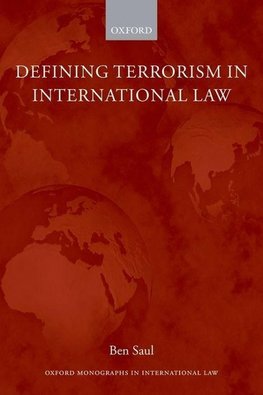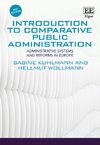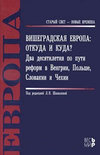
-
 Anglický jazyk
Anglický jazyk
Defining Terrorism in International Law
Autor: Ben Saul
The first book devoted to the problem of defining terrorism in international law
Comprehensive coverage of the negotiations behind all major attempts to define terrorism since the 1920s
Presents an original model for future attempts to define terrorism
Exhaustive...
Viac o knihe
Na objednávku, dodanie 2-4 týždne
69.96 €
bežná cena: 79.50 €
O knihe
The first book devoted to the problem of defining terrorism in international law
Comprehensive coverage of the negotiations behind all major attempts to define terrorism since the 1920s
Presents an original model for future attempts to define terrorism
Exhaustive analysis examines treaty and customary law, the practice of the UN and regional organizations, and national laws
Despite numerous efforts since the 1920s, the international community has failed to define or criminalize 'terrorism' in international law. This book first explores the policy reasons for defining and criminalizing terrorism, before proposing the basic elements of an international definition. Terrorism should be defined and criminalized because it seriously undermines fundamental human rights, jeopardizes the State and peaceful politics, and may threaten international peace and security. Definition would also help to distinguish political from private violence, eliminating the overreach of the many 'sectoral' anti-terrorism treaties. A definition may also help to confine the scope of UN Security Council resolutions since 11 September 2001, which have encouraged States to pursue unilateral and excessive counter-terrorism measures.
Defining terrorism as a discrete international crime normatively recognizes and protects vital international community values and interests, symbolically expresses community condemnation, and stigmatizes offenders. Any definition of terrorism must also accommodate reasonable claims to political violence, particularly against repressive governments, and this book examines the range of exceptions, justifications, excuses, defences, and amnesties potentially available to terrorists, as well as purported exceptions such as self-determination struggles, 'State terrorism', and armed conflicts.
While this book seeks to minimize recourse to violence, it recognises that international law should not become complicit in oppression by criminalizing legitimate forms of political resistance. In the absence of an international definition, the remainder of the book explores how the international community has responded to terrorism in international and 'regional' treaties, the United Nations system, and in customary law. The final part of the book explores the distinctive prohibitions and crime of 'terrorism' in armed conflict under international humanitarian law.
Readership: Academics and postgraduate students in international law, international relations, defence/strategic studies, and politics; government and UN legal advisers, NGOs, international and regional organizations, and specialist institutes in security, and terrorism.
- Vydavateľstvo: OUP Oxford
- Rok vydania: 2008
- Formát: Paperback
- Rozmer: 234 x 156 mm
- Jazyk: Anglický jazyk
- ISBN: 9780199535477







 Nemecký jazyk
Nemecký jazyk 
 Ruský jazyk
Ruský jazyk 



